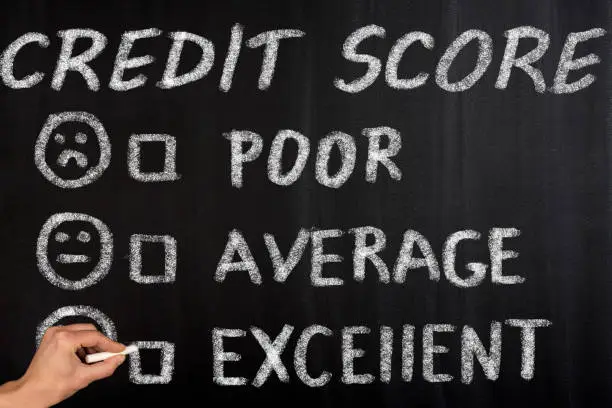Applying for a loan is a big step, whether it’s for buying a house, a car, or funding a new venture. One of the most important factors lenders look at is your credit score. This three-digit number reflects your creditworthiness and helps lenders decide whether to approve your loan and what interest rate to offer. A higher credit score means better loan terms, lower interest rates, and more financial flexibility.
If your credit score isn’t where you want it to be, don’t panic. The good news is that you can actively improve your score before applying for a loan—giving you a better shot at approval and saving you thousands of dollars in interest. In this article, we’ll explore actionable, practical ways to boost your credit score step-by-step.
1. Understand the Components of Your Credit Score
First, it’s essential to understand what goes into your credit score so you can focus on the right areas. The most widely used credit scoring model, FICO, breaks your score down into five parts:
- Payment History (35%): This is the most significant factor. It shows whether you’ve paid your bills on time.
- Amounts Owed (30%): This reflects your credit utilization ratio, or how much of your available credit you’re using.
- Length of Credit History (15%): Older credit accounts help build a stronger score.
- New Credit (10%): Opening several new accounts in a short period can lower your score.
- Credit Mix (10%): A mix of credit types—credit cards, mortgages, loans—can positively influence your score.
By knowing these, you can target your efforts more effectively.
2. Obtain and Review Your Credit Reports
Everyone is entitled to a free credit report from each of the three major credit bureaus: Experian, Equifax, and TransUnion, once per year. You can get yours from AnnualCreditReport.com.
Why is this step crucial? Because errors on your credit report are more common than you might think, and they can unnecessarily lower your score. These errors could include:
- Accounts that aren’t yours
- Incorrect account balances
- Wrong credit limits
- Duplicate entries
- Late payments reported inaccurately
Take your time to comb through every detail. If you spot any inaccuracies, file a dispute with the bureau that issued the report. This can be done online, and bureaus usually respond within 30 days. Correcting errors often leads to an immediate bump in your credit score.
3. Pay Down Your Existing Debt
One of the fastest ways to boost your credit score is to reduce your credit card balances.
Credit utilization ratio is key here—it’s the percentage of your total available credit that you’re using. For example, if your credit card limit is $10,000 and you have a balance of $5,000, your utilization is 50%. Experts recommend keeping this ratio below 30%, and ideally under 10% for maximum impact.
High credit card balances signal risk to lenders because they might worry you’re relying too much on credit.
Tips to pay down debt efficiently:
- Focus on paying down cards with the highest interest rates first (the debt avalanche method).
- Alternatively, pay off smaller balances first for quick wins (the debt snowball method).
- Avoid making new purchases on cards while paying down balances.
- Consider transferring high-interest balances to a card with a lower interest rate or 0% introductory offer, if you qualify.
Lowering your credit card balances not only helps your score but also improves your financial health and frees up money for loan payments.
4. Make Every Payment On Time
Your payment history accounts for 35% of your credit score—more than any other factor. So, paying bills on time is non-negotiable.
Late payments, especially those over 30 days past due, can have a severe negative impact on your score. The longer the delay, the worse it gets. Additionally, missed payments can lead to collection actions, which damage your credit further.
How to stay on track:
- Set up automatic payments for at least the minimum due.
- Use calendar alerts or apps to remind you of payment dates.
- If you’re struggling to pay bills, contact your creditors proactively; some offer hardship programs or temporary relief.
- Catch up on any missed payments as soon as possible, because payment history improves with time.
Remember, even if you have late payments from years ago, consistent on-time payments now can gradually heal your score.
5. Avoid Applying for Multiple New Credit Lines at Once
While it might be tempting to open a new credit card for rewards or a personal loan for extra cash, applying for multiple credit lines in a short time can hurt your score.
Each loan or credit card application triggers a “hard inquiry” on your credit report, which can lower your score by a few points temporarily. Multiple inquiries in a short window look like financial distress to lenders.
Be strategic about new credit applications:
- Only apply for credit you truly need.
- Space out applications by at least six months or more.
- When shopping for the best loan or mortgage rates, try to do all inquiries within a short “rate shopping” window (usually 14-45 days) to minimize the impact.
6. Keep Your Old Credit Accounts Open
The length of your credit history accounts for 15% of your credit score. So, closing older accounts can shorten your credit age and hurt your score.
Even if you don’t use some credit cards often, keeping them open helps maintain a longer credit history and more available credit (which helps your utilization ratio).
If you must close accounts, try to avoid closing your oldest cards.
7. Become an Authorized User
If you have a close family member or friend with a strong credit history and good habits, ask if they can add you as an authorized user on their credit card.
Why does this help?
- The account’s positive payment history and low utilization rate reflect on your credit report.
- You don’t need to use the card or carry the debt yourself.
Just make sure the primary cardholder continues to make payments on time because their activity will impact your credit too.
8. Diversify Your Credit Mix
A healthy credit mix is beneficial because it shows lenders you can responsibly handle different types of credit.
If your credit profile is thin (only credit cards or very few accounts), consider adding an installment loan (like a small personal loan or credit-builder loan) to improve your credit mix.
However, don’t open credit accounts unnecessarily just to diversify; new accounts mean inquiries and potential short-term score dips.
9. Avoid Closing Accounts Before Large Purchases
Some people think closing credit cards before applying for a loan will improve their debt-to-income ratio. But this can backfire.
Closing accounts reduces your total available credit, increasing your utilization ratio, which often leads to a lower score. It can also shorten your credit history.
Instead, focus on paying down balances and maintaining your accounts.
10. Monitor Your Progress and Be Patient
Improving your credit score takes time—there’s no overnight fix. Positive behaviors will reflect on your report within a few months to a year.
- Use free credit monitoring tools like Credit Karma or your bank’s credit score service to track changes.
- Stay consistent with payments and debt reduction.
- Avoid quick-fix schemes or “credit repair” companies promising miracles—they often cost money and may not work.
Remember, your credit score is a snapshot of your financial behavior over time, so keep making smart financial decisions.
Conclusion
Improving your credit score before applying for a loan is one of the smartest financial moves you can make. Not only can it help you get approved more easily, but it can also save you significant money by lowering your interest rates and improving your loan terms.
From paying bills on time, reducing debt, checking your reports for errors, to avoiding unnecessary credit applications, each step you take moves you closer to a healthier credit profile. The process requires patience and discipline, but the rewards are well worth it.
Start today, and you’ll be in a much stronger position when it’s time to apply for that loan.
Frequently Asked Questions (FAQs)
Q1: How long does it typically take to see improvements in my credit score?
Usually, positive changes like paying down debt and correcting errors can show effects within 3 to 6 months, but significant improvements can take longer.
Q2: Does checking my own credit report hurt my score?
No! Checking your own credit is a “soft inquiry” and does not impact your credit score.
Q3: Will paying off all my debt immediately guarantee a perfect credit score?
While paying off debt helps, your credit score also depends on other factors like credit history and payment history. It’s about consistent positive behavior over time.
Q4: Are secured credit cards a good way to rebuild credit?
Absolutely! Secured cards require a deposit and are a safe way to build or rebuild credit if used responsibly.
Q5: Can disputing an error really increase my credit score?
Yes. Removing incorrect negative information can boost your score, sometimes significantly.




